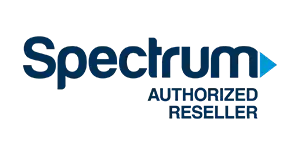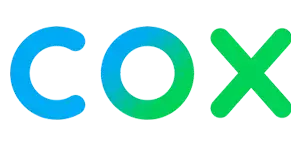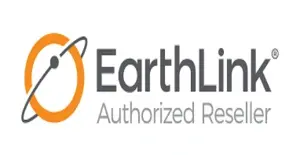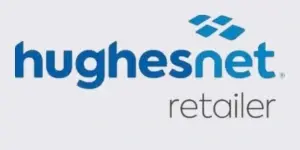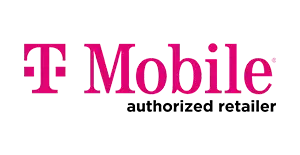Top Internet Providers in Norfolk, Virginia
Spectrum
Connection:
Cable, Fiber
Download speeds up to
2 Gbps
Starting Price:
$30.00/mo*
Cox
Connection:
Cable, Fiber
Download speeds up to
2 Gbps
Starting Price:
$50.00/mo*
Earthlink
Connection:
Fiber
Download speeds up to
940 Mbps
Starting Price:
$54.95/mo*
HughesNet
Connection:
Satellite
Download speeds up to
100 Mbps
Starting Price:
$39.99/mo*
Verizon
Connection:
5G Internet
Download speeds up to
300 Mbps
Starting Price:
$35.00/mo*
T Mobile
Connection:
5G Internet
Download speeds up to
87 - 415 Mbps
Starting Price:
$50.00/mo*
The Ultimate Guide to Cheap Internet Service Providers in Norfolk, Virginia
As the cultural and economic heart of Hampton Roads and home to the world's largest naval base, Norfolk, Virginia, is a city that thrives on connectivity. From military personnel and government contractors to students at Old Dominion University and families streaming their favorite shows, a fast, reliable, and affordable internet connection is not a luxury—it's a necessity. The local ISP market is competitive, offering a mix of fiber-optic, cable, DSL, and fixed wireless technologies, each with its own advantages and price points.
Navigating this landscape to find the best value can be challenging. This guide provides an in-depth analysis of every major and budget internet service provider in Norfolk. We will dissect plans, pricing, hidden fees, and performance data to help you make an informed decision tailored to your specific needs and budget.
Part 1: Understanding the Internet Technology Landscape in Norfolk
Before comparing providers, it's crucial to understand the types of internet service available. The technology used directly impacts your speed, reliability, and cost.
- Fiber-Optic Internet (FTTH - Fiber to the Home): The gold standard. Light signals transmitted through glass fibers offer blistering speeds, incredibly low latency (crucial for gaming and video calls), and symmetrical upload and download speeds. Providers like Verizon Fios and Metronet are leading the fiber charge in Norfolk.
- Cable Internet: The most widely available type. It uses the same coaxial lines as cable TV. It offers high download speeds but typically much slower upload speeds, and performance can slow down during peak usage times in your neighborhood as bandwidth is shared. Cox and Xfinity are the primary cable providers.
- 5G / Fixed Wireless Internet: This service beams an internet signal from a cell tower to a receiver in your home. It's a fantastic, flexible option with no contracts, easy setup, and growing coverage. However, it can be susceptible to network congestion and signal interference. T-Mobile Home Internet and Verizon 5G Home Internet are key players.
- DSL (Digital Subscriber Line): Uses traditional copper phone lines. It's widely available but offers slower speeds than cable or fiber, and its performance degrades the farther you are from the provider's hub. It is often the last resort when other options are absent.
Part 2: Deep Dive into Major Norfolk Internet Providers
Cox Communications: The Dominant Cable Provider
With coverage for approximately 94.5% of Norfolk, Cox is the most accessible provider in the city. As a cable provider, it leverages an extensive existing network.
- Plans & Pricing (Note: Prices often increase significantly after 12-24 months):
- ConnectBasic (100 Mbps): Often priced around $50/month for the first year. Suitable for very light use—1-2 devices browsing and streaming SD video.
- ConnectPreferred (250 Mbps): A common entry point, usually $70-$80/month intro pricing. Good for most families with multiple devices streaming HD content.
- ConnectFast (500 Mbps): Intro pricing around $90/month. Ideal for larger households with 4K streaming, gaming, and working from home.
- Gigablast (1 Gbps): $110-$130/month intro price. Designed for power users, smart homes, and virtually unlimited simultaneous usage.
- Go Beyond Fast (2 Gbps): ~$150/month. A fiber-powered plan from Cox for extreme speed needs.
- Data Cap: Cox enforces a 1.25 TB monthly data cap on most plans. Exceeding this cap costs $10 for each additional 50GB block of data, up to a maximum of $100 extra per month. This can be a significant hidden cost for heavy-usage families.
- Pros: Extensive availability; high maximum speeds; reliable performance for cable; strong local presence.
- Cons: Expensive standard pricing after promotional periods; data caps with overage fees; upload speeds are not competitive with fiber.
- Best For: Households that need widespread availability and high download speeds but are mindful of their data usage to avoid overages.
Verizon Fios: The Fiber Frontrunner
Available to about half of Norfolk, Verizon Fios is a top-tier choice where available. It's a 100% fiber-optic network that provides superior symmetrical speeds and reliability.
- Plans & Pricing (Fios Mix & Match pricing is often simpler and more stable long-term):
- 300 Mbps: $49.99/month. A solid plan for most families, offering 300 Mbps upload and download.
- 500 Mbps: $69.99/month. Excellent for heavy users who work from home and upload large files frequently.
- 1 Gigabit (940/880 Mbps): $89.99/month. Top-tier performance with no realistic usage constraints.
- Data Cap: No data caps on any Fios internet plans. This is a major advantage over Cox.
- Pros: Symmetrical upload/download speeds; no data caps; consistent pricing; industry-leading reliability and low latency.
- Cons: Limited to ~49% of Norfolk; requires professional installation.
- Best For: Anyone who can get it. Especially ideal for remote workers, gamers, content creators, and large households that value reliability and fast uploads.
Metronet: The Disruptive Fiber Challenger
Metronet is aggressively expanding its 100% fiber network in Norfolk, offering fierce competition to incumbent providers. They are a key driver of lower prices in the areas they serve.
- Plans & Pricing (Prices are guaranteed for life, a massive benefit):
- 100 Mbps: $39.95/month (price for life).
- 500 Mbps: $59.95/month (price for life).
- 1 Gigabit: $69.95/month (price for life).
- 2 Gigabit: $99.95/month (price for life).
- 5 Gigabit: $129.95/month (price for life).
- Data Cap: No data caps.
- Pros: "Price for Life" guarantee eliminates annual price hikes; no contracts; no data caps; symmetrical speeds; affordable multi-gigabit options.
- Cons: Availability is still expanding and not as widespread as Cox.
- Best For: Cost-conscious consumers who want future-proof fiber speeds without the fear of rising bills. Check availability first.
Xfinity: The National Cable Alternative
Xfinity serves a smaller portion of Norfolk (~36.7%) but can be a competitive option, especially with its aggressive introductory pricing.
- Plans & Pricing (Introductory rates, usually for 12 months):
- Performance Starter (50 Mbps): ~$30/month. Basic internet for light use.
- Performance Pro (200 Mbps): ~$45/month. Good for a few users.
- Superfast (400 Mbps): ~$65/month. A solid mid-tier option.
- Gigabit (1 Gbps) / Gigabit Extra (1.2 Gbps): ~$80-$100/month.
- Data Cap: Xfinity has a 1.2 TB data cap in most areas, similar to Cox. Overage fees apply, or you can pay an extra $30/month for unlimited data.
- Pros: Low introductory prices; widespread national network; extensive bundle options.
- Cons: Prices can double after the promotional period; data caps; contract requirements for best pricing; upload speeds are slow.
- Best For: Budget-focused users who are comfortable switching providers after their intro price expires and who don't use excessive data.
Part 3: The Best Cheap & No-Contract Options
For those seeking flexibility and low monthly costs without the commitment of a traditional ISP, these options are essential to consider.
T-Mobile Home Internet
This fixed wireless service leverages T-Mobile's powerful 5G network to provide home internet to over 82% of Norfolk residents.
- Price: $50/month (or $30/month for qualifying Magenta Max mobile customers). No price hikes, no contracts.
- Speed: Typically ranges from 35-245 Mbps, depending on signal strength. Speeds can vary based on network congestion.
- Data Cap: None. It's truly unlimited.
- Pros: Unlimited data; no contracts; simple, flat-rate pricing; easy self-setup; perfect for renters.
- Cons: Speeds are not guaranteed and can be inconsistent; higher latency than fiber/cable; not suitable for competitive gaming.
- Best For: Light to moderate users, cord-cutters, and those in areas without good cable/fiber options. An excellent "try before you commit" option.
Verizon 5G Home Internet
Similar to T-Mobile, Verizon uses its 5G Ultra Wideband network to deliver home internet.
- Price: $50/month (or $35/month for qualifying Verizon mobile customers). Price-lock guarantee.
- Speed: Two plans: 5G Home (85-300 Mbps) and 5G Home Plus (200-1,000 Mbps, where available).
- Data Cap: None.
- Pros: No contract; unlimited data; potential for very high speeds in strong signal areas; includes perks like streaming subscriptions on the Plus plan.
- Cons: Limited availability (only ~27% of Norfolk); performance is entirely dependent on your proximity to a Verizon node.
- Best For: Verizon mobile customers who can get a discount and verify a strong 5G signal at their home.
Affordable Access Programs: Lifeline & The Affordable Connectivity Program (ACP)
For qualifying low-income households, these federal programs can reduce internet costs to zero.
- ACP: Provides a $30/month discount ($75/month on Tribal lands) on internet service. Nearly all major providers in Norfolk (Cox, Verizon, Xfinity, T-Mobile) participate. This can make a basic plan completely free or a higher-tier plan extremely cheap.
- Lifeline: Provides a $9.25/month discount.
- Eligibility: Based on household income (at or below 200% of the Federal Poverty Guidelines) or participation in programs like SNAP, Medicaid, SSI, WIC, or Lifeline.
Part 4: Strategic Guide to Choosing Your Provider in Norfolk
Follow this step-by-step process to find your ideal ISP:
- Check Availability: Use online tools on provider websites (Verizon, Cox, Metronet, T-Mobile) to input your specific address. Availability can vary block by block.
- Audit Your Usage:
- Light (Web, Email, 1 SD Stream): 50-100 Mbps is sufficient.
- Medium (HD Streaming, Gaming, WFH): 200-500 Mbps is ideal.
- Heavy (4K/8K Streaming, Large File Uploads/Downloads, Smart Home): 1 Gbps or more is recommended.
- Calculate the True Cost: Don't just look at the intro price. Factor in:
- Standard monthly price after the promotion ends.
- Equipment rental fees (~$10-$15/month) vs. buying your own modem/router.
- Potential overage fees if the plan has a data cap.
- Taxes and miscellaneous fees.
- Read the Fine Print: Look for contracts, early termination fees (ETFs), and price guarantee policies. Providers like Metronet with "Price for Life" offer exceptional long-term value.
- Leverage Competitors: Use a cheaper quote from a competitor (e.g., Metronet's fiber pricing) to negotiate a better deal with your current provider, especially Cox. Retention departments often have access to unadvertised discounts.
Conclusion: Navigating for the Best Value
The quest for cheap, high-quality internet in Norfolk is more achievable than ever. While Cox maintains the widest coverage, the competitive pressure from Verizon Fios's superior fiber and Metronet's aggressive expansion is driving down prices and increasing consumer choice.
For the best overall value, Verizon Fios is the top choice where available, offering unmatched performance and simplicity. For those on a tight budget or seeking flexibility, T-Mobile Home Internet presents a compelling, no-hassle option. And for the cost-conscious consumer planning to stay put, Metronet's "Price for Life" guarantee is arguably the best deal in the market.
By understanding the technologies, carefully comparing the true long-term costs, and knowing your household's needs, you can cut through the marketing noise and secure an internet plan that keeps Norfolk connected without breaking the bank.
Compare Internet Providers in Norfolk VA
Moving to the Norfolk area?
Let us help you transfer your current Internet service or pick a new plan.
Find More Internet Providers by Locations Near You
- Internet Providers in New York
- Internet Providers in Los Angeles
- Internet Providers in Chicago
- Internet Providers in Houston
- Internet Providers in Philadelphia
- Internet Providers in San Antonio
- Internet Providers in San Diego
- Internet Providers in Dallas
- Internet Providers in Phoenix
- Internet Providers in Minneapolis
- Internet Providers in Austin
- Internet Providers in San Jose
- Internet Providers in Fort Worth
- Internet Providers in Jacksonville
- Internet Providers in Columbus
- Internet Providers in Charlotte
- Internet Providers in Indianapolis
- Internet Providers in San Francisco
- Internet Providers in Seattle
- Internet Providers in Denver
- Internet Providers in Detroit
- Internet Providers in Boston
- Internet Providers in El Paso
- Internet Providers in Nashville
- Internet Providers in Cleveland
- Internet Providers in Portland
- Internet Providers in Las Vegas
- Internet Providers in Louisville
- Internet Providers in Milwaukee
- Internet Providers in Baltimore
- Internet Providers in Albuquerque
- Internet Providers in Fresno
- Internet Providers in Sacramento
- Internet Providers in Atlanta
- Internet Providers in Saint Paul
- Internet Providers in Kansas City
- Internet Providers in Tucson
- Internet Providers in Raleigh
- Internet Providers in Omaha
- Internet Providers in Miami
- Internet Providers in Long Beach
- Internet Providers in Oakland
- Internet Providers in Tampa
- Internet Providers in Wichita
Top Internet Providers in Norfolk in Your Area
FAQ
What types of internet connections are available in Norfolk VA?
Some of the top internet providers in Norfolk include Xfinity, AT&T, Spectrum, and Frontier. The best provider for you depends on your location, internet speed needs, and budget.
How much does the internet cost in Norfolk VA?
Norfolk offers various internet connections, including fiber-optic, cable, DSL, and satellite. Fiber-optic provides the fastest speeds, but cable and DSL are also widely available.
Is Google Fiber available in Norfolk VA?
Internet prices in Norfolk range from $30 to $100+ per month, depending on the provider, plan, and speed. Higher-speed plans, especially fiber optics, tend to cost more.
Is Google Fiber available in Norfolk VA?
Google Fiber is not currently available in Norfolk VA. However, other high-speed internet providers such as Xfinity, AT&T, and Spectrum offer service in the area.
Can I bundle the internet with TV or phone services in Norfolk VA?
Yes, many internet providers in Norfolk offer bundle packages that include internet, TV, and phone services. Providers like Xfinity, Spectrum, and AT&T offer discounts when bundling multiple services.
Find Best Internet Provider in Your area?
Enter your zip so we can find the best providers in your area:
